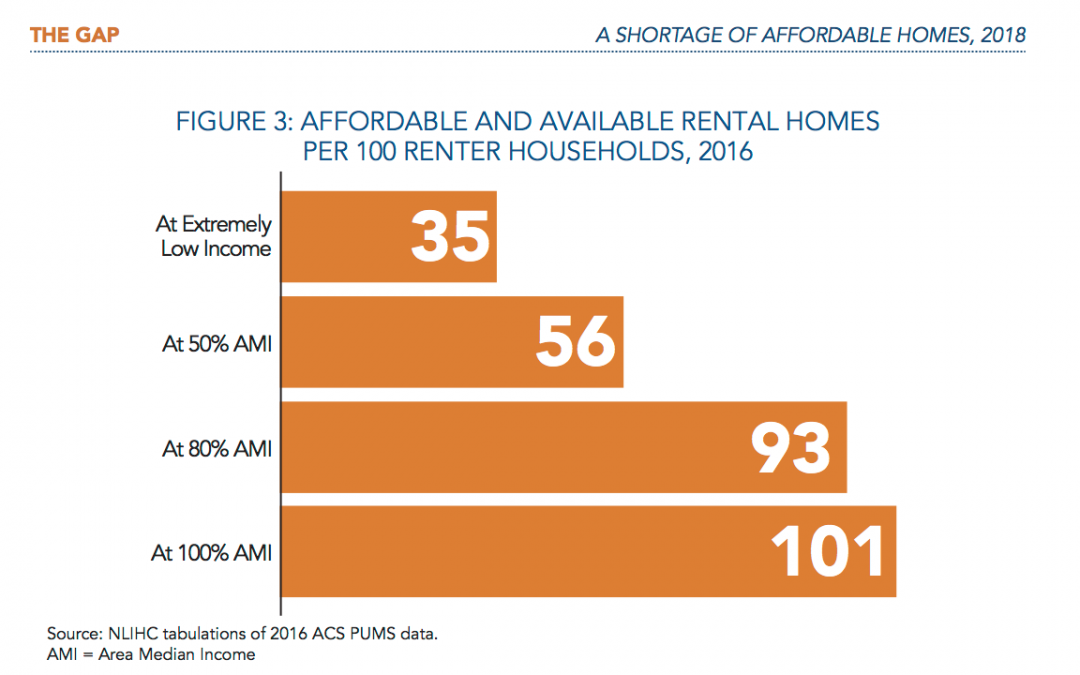WASHINGTON – Less than a week after Housing and Urban Development Secretary Ben Carson defended his push to remove anti-discrimination language from the HUD mission statement, the National Low Income House Coalition released a report Tuesday showing the shortage of affordable housing for extremely low-income Americans, who are disproportionately members of minority groups, has increased.
Andrew Aundard, the main author of the new report published by the National Low Income Housing Coalition, said only 35 affordable and available homes exist for every 100 renter households.
African-American and Hispanic households are more significantly hurt by this shortage because they are more likely to be extremely low income, Aundard said. In addition, 46 percent of extremely low-income renter households are seniors or people with disabilities.
According to a leaked email, Carson’s proposed mission statement would say “Americans have access to fair, affordable housing and opportunities to achieve self-sufficiency, thereby strengthening our communities and nation.”
“This latest in a series of moves by Secretary Carson to de-emphasize HUD’s role in creating inclusive communities is unfortunate—thankfully, the law trumps a mission statement, so those legal obligations remain,” said Diane Yentel, president and CEO of the National Low Income Housing Coalition after the news broke.
But Michela Zonta a senior policy analyst of housing at the left-leaning Center for American Progress, said in an interview that the proposed language changes as an attack on initiatives that would help implement fair housing laws in communities of color.
“We know for a fact that people of color are the most impacted when it comes to housing costs,” she said. “These are the very communities that first of all have been impacted by the foreclosure crisis… With a shortage of affordable housing, shrinking funding for housing assistance programs and then on top of that we also undermine fair housing initiatives? I don’t see this situation getting any better.”
Zonta said the increased affordable housing shortage show policies aren’t catching up to the needs of these households.
Yentel said Tuesday at the release of the coalition’s report: “We don’t lack solutions to the affordable housing crisis. We do lack the political will to fund the solutions at the scale necessary to solve the crisis.”
President Donald Trump’s recently released Fiscal Year 2019 Budget proposal would slash HUD funding by about $8.8 billion. Carson defended the budget cuts as “focused on moving more people toward self-sufficiency through reforming rental assistance programs and moving aging public housing to more sustainable platforms.”
Yentel said solutions to the affordable housing gap should focus on increasing a supply of homes that are affordable to the lowest income people through the national housing trust fund and deeply targeted low income housing tax credit units, along with rental assistance to fill the growing gap between what people earn and what rent costs.
Zonta points to two leading initiatives in addressing the housing crisis. She said the low income tax credit program, the federal government’s primary program for encouraging the investment of private equity in the development of affordable rental housing for low-income households, has been a top initiative. Housing Choice Vouchers, the federal government’s major program for assisting very low-income families, the elderly, and the disabled to afford housing in the private market, is a program she said needs to be preserved despite proposed budget cuts.
Some local governments have taken funding for affordable housing into their own hands. On Monday, city officials in Detroit rolled out a plan to create the Affordable Housing Leverage Fund which would include $250 million dollars to preserve 10,000 affordable housing units and develop 2,000 more in the coming five years. The fund would include $50 million in grant funds; $150 million in low-interest borrowing and $50 million in public money the city expects to receive.
“State and local governments certainly have a role to play,” said Yentel. “But state and local governments on their own certainly cannot make up for the role the federal government has to play. To solve the crisis requires a major federal investment.”

